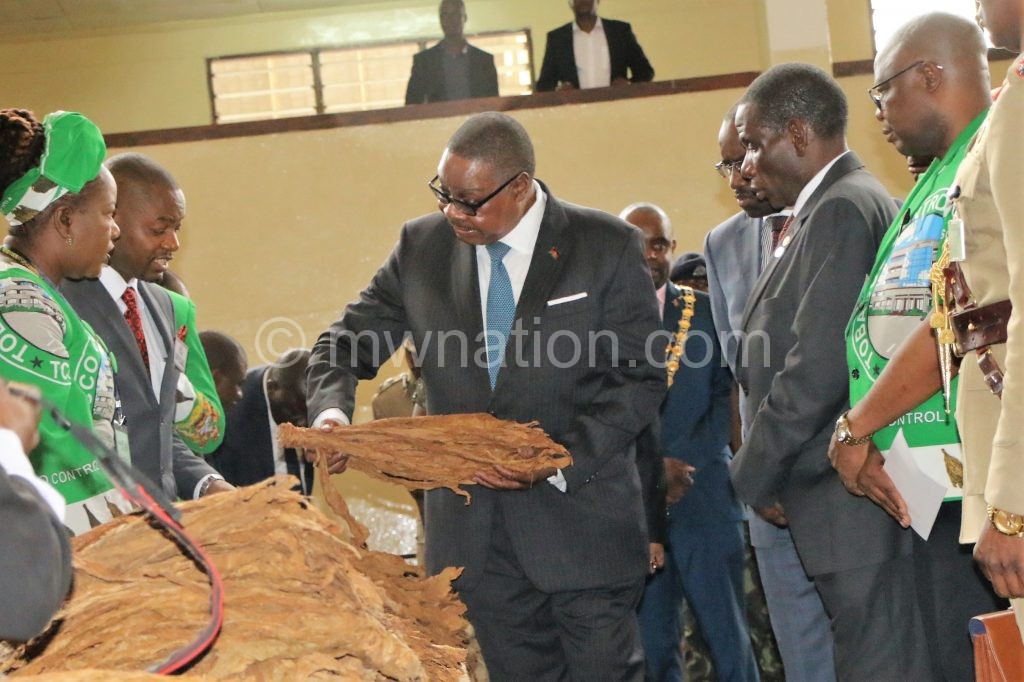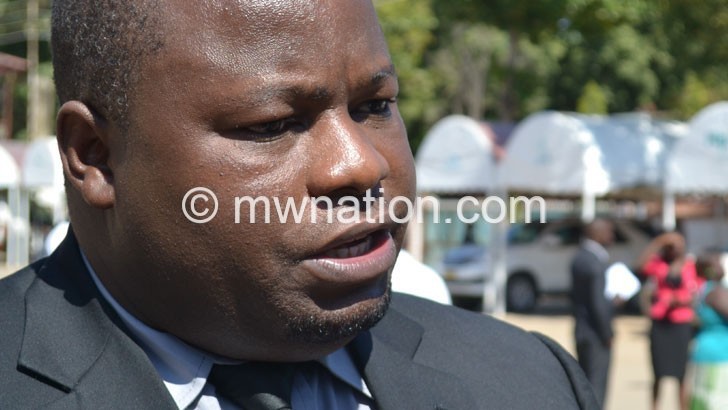US tobacco Ban jerks MW
A United States of America (USA) decision on Friday to ban Malawi’s export of all tobacco and tobacco products into that country has shocked authorities, with Ministry of Agriculture, Irrigation and Water Development calling for an emergency meeting tomorrow with Tobacco Control Commission (TCC).
The decision, based on alleged forced labour practices, including child labour, is likely to negatively affect the economy if maintained, owing to the fact that tobacco is the country’s main foreign exchange earner, contributing at least 60 percent of foreign exchange earnings and accounting for at least 25 percent of tax revenue.

The tobacco industry also contributes around 13 percent of the Malawi gross domestic product (GDP) while the agriculture industry, which accounts for more than 80 percent of its rural population, has a tobacco grower base of about 60 000.
Already, in the 2018/19 marketing season, earnings from tobacco have gone down, realising about $237 million (about K175.3 billion at the current exchange rate) as compared to $337.5 million (about K249.4 billion) realised in the 2017/18 marketing season.
US Customs and Border Protection (CBP) issued a “Withhold Release Order” on tobacco from Malawi, allowing it to detain imported goods believed to have been produced with forced labour, according to a news report by CNN.

This is a heavy blow for an economy that relies on tobacco, the country’s balance of trade. On the other hand, Malawi is also facing anti-tobacco campaigners who have been demanding from authorities to fast-track efforts to replace tobacco with something else.
Minister of Agriculture, Irrigation and Water Development Kondwani Nankhumwa said, in an interview yesterday, that he learnt about the sad development Friday night through social media.
“I immediately contacted my Principal Secretary to arrange for a meeting with Tobacco Control Commission (TCC). We want to understand what led to this. This is sad, but we cannot give our immediate reaction before we have facts.
“In any case, whatever has happened, the US government is supposed to communicate to us through our Ministry of Foreign Affairs,” Nankhumwa said.
Principal Secretary (PS) in the Ministry of Industry, Trade and Tourism, Ken Ndala, said he could not react immediately as he needed to consult his directors, but hinted that he was aware about the issues.
Ndala said his ministry had been dealing with the issues and had been to Ministry of Labour over such issues, adding that he was saddened by the US decision.
TCC chief executive officer (CEO) Kayisi Sadala said yesterday he had no immediate comment as the alleged decision was made by another government, suggesting that the Malawi Government was better placed to comment on the matter.
World Vision Malawi deputy director Charles Chimombo, asked for his reaction to the US ban in an interview yesterday as his organisation, alongside Plan International, have been campaigning against child labour, said what was important to them was the protection of child rights.
“We have always wanted to ensure that children are protected and are given sense of dignity. Child labour is counter-productive. Who will be there tomorrow if they don’t live their full potential life?
“We want a conducive environment created for them by everyone of us, from community institutions and government and society as a whole for children to excel,” Chimombo said.
Efforts to talk to Plan International proved futile, but a 2011 entry on the organisation’s website plan-international.org reported that a campaign against child labour in Malawi resulted in 2 000 children being removed from hazardous tobacco farms “but more needs to be done”.
A Catholic University-based economist Gilbert Kachamba feared US may influence other big economies to follow suit, especially in Europe where Malawi has the biggest tobacco market.
“Though not big, but we had an emerging market in USA; this is a setback, especially when we also have a strong campaign against tobacco at the global level,” Kachamba said.
The economic expert suggested it was time Malawi considered diversifying to other crops as foreign exchange earner as there were so many negative issues being attached to tobacco.
The US Customs and Border Protection, according to the CNN news report, has recently ramped up its efforts to hold companies and suppliers accountable for forced labour practices.
“Malawi tobacco is one of those areas where we are trying to send a message,” CBP Office of Trade Executive Assistant Commissioner Brenda Smith told CNN.
The report reads that forced labour in Malawi has been well documented.
It says despite some advancement in preventing child labour, children in Malawi are still engaged in the worst forms of child labour, including in the harvesting of tobacco and in commercial sexual exploitation, according to the US Department of Labour.
“Children working with tobacco risk illness from nicotine absorption, including ‘green tobacco sickness’. They are also exposed to pesticides, chemicals, and harsh weather conditions,” the report further reads.
The detainment’s order against Malawi tobacco, says the report, is the seventh this year, the most the US has issued since the early 1990s when a number were issued against Chinese companies.
The ban comes at a time there is a pending lawsuit in Britain against British American Tobacco (BAT) by human rights lawyers on behalf of hundreds of Malawian children and their families forced by poverty to work in conditions of grueling hard labour in the fields of Malawi, as reported by the United Kingdom’s Guardian.
Lawyers from Leigh Day are seeking compensation for more than 350 child labourers and their parents in the High Court in London, arguing that the British company is guilty of “unjust enrichment”.
BAT plc is a British multinational cigarette and tobacco manufacturing company headquartered in London. It is the second-biggest cigarette maker in the world as of 2012 and has a market-leading position in over 50 countries and operations in around 180 countries.





